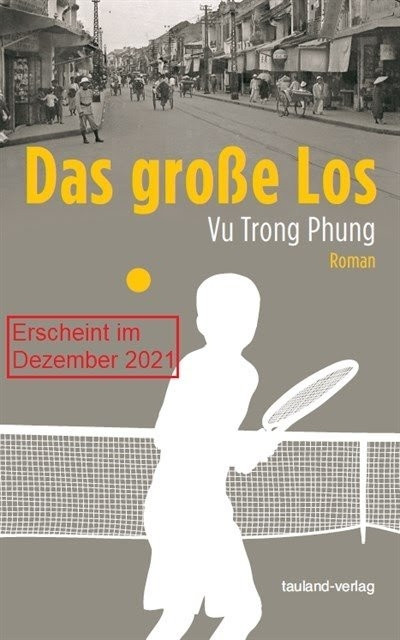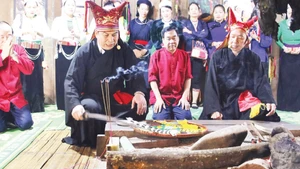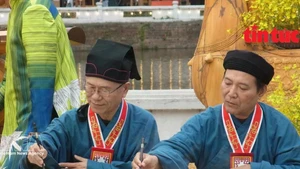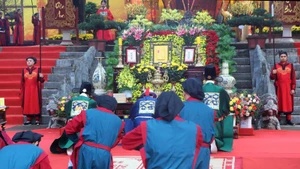Published by the Tauland Publishing House in Cologne, the novel has been translated from Vietnamese by translator Hoang Dang Lanh.
On its website, the German publishing house wrote: “Vu Trong Phung's masterpiece Lucky Fate presents the effects of French colonialism on Vietnamese society in the 1930s with humour and satire. Confronted with the shock of colonialism, the class of intellectuals and bourgeois in Vietnam see no other way out than to radically modernise their own native cultures.
Vu Trong Phung humorously unmasks the mistakes and absurdities of this Westernisation by telling the story of a sly young man who is the ball boy of a tennis court before becoming a medical doctor, a professional tennis player, and then the saviour of the nation.”
According to the publishing house, the novel reveals the devastating effects of colonialism on Vietnam. The book also presents topical issues; the conflict between old and new, and between preservation and renewal.
In September, the novel was published in China. The Chinese-language version was translated by Associate Professor Xia Lu of the Beijng University, who earlier also translated the award-winning novel The Sorrow of War by Vietnamese author Bao Ninh.
In 2002, the novel was published in the US by the University of Michigan Press under the title Dumb Luck. Peter Zinoman, an internationally recognised expert researcher on Vu Trong Phung, is the translator and editor of the book, which then was named by the Los Angeles Times as one of 50 best books of 2003.
First published in Vietnamese in Hanoi in 1936, the novel follows the absurd and unexpected rise within colonial society of a street-smart vagabond, Red-Haired Xuan.
From the filthy sidewalks of life, Red-Haired Xuan suddenly becomes a member of the upper-class thanks to the westernisation of Hanoi's lower middle class in the 1930-45 period.
The novel charts Xuan's fantastic social ascent and provides a panoramic view of colonial social order.
The transformation of traditional Vietnamese class and gender relations triggered by the growth of colonial capitalism is a major theme.
Writer Vu Trong Phung (1912-39) is among the country's most famous writers and journalists of the early 20th century.
He began his literary career after releasing his first novel, Du Tinh (Breaking Up), in 1934.
He released a series of realistic-style novels, such as So Do and Ky Nghe Lay Tay (Skills to Get Married to Westerners), focusing on the lives of locals and social issues in the semi-feudal colonial society during the French war.
Works like Giong To (Storm), and Lam Di (Being a Prostitute) reflect "hidden corners" of the feudalistic society.
He also worked as a reporter for several newspapers in Hanoi in the 1930s. He died of tuberculosis in 1939 when he was 27.




![[Video] The Temple of Literature in season of Spring calligraphy](https://en-cdn.nhandan.vn/images/5992a12dd6e78b9bfb434962ff1830731c3ef6c1538d722fbb2593b0fa31ecfedeb238078524ceba2aa9d89b0c67a420f46838d3e995e2341141b35e4f58da93/anh-dai-dien.jpg.webp)











